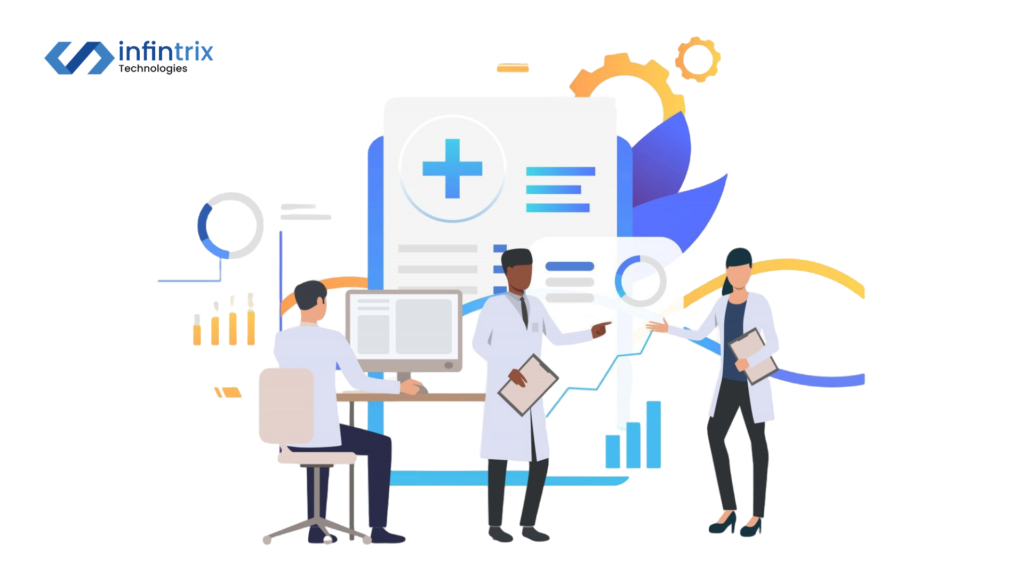Top 8 Features and Benefits of a Hospital Management System

In an era where technology seamlessly combines with healthcare, adopting a hospital management system (HMS) has become essential for efficient hospital operations. These systems streamline processes, improve patient care, and reduce administrative overhead, ensuring hospitals provide top-notch services. Let’s explore the key features and benefits that make an HMS indispensable for modern healthcare facilities.
1. Patient Information Management
Efficient patient information management lies at the core of any hospital’s operations. An HMS provides centralized storage for patient records, including medical history, prescriptions, test results, and appointment schedules. This ensures:
- Rapid access to patient data.
- Reduced paperwork.
- Enhanced decision-making for personalized treatments.
2. Appointment and Scheduling Management
Managing appointments effectively minimizes patient wait times and optimizes doctor availability. HMS automates appointment scheduling, reducing conflicts and ensuring:
- Seamless coordination between patients and healthcare professionals.
- Online booking capabilities for patient convenience.
- Improved patient satisfaction and operational efficiency.
3. Billing and Financial Management
Billing is one of the most complex aspects of healthcare management. An HMS automates billing processes, integrates insurance claims, and ensures accurate invoicing. Key benefits include:
- Error-free billing and reduced financial discrepancies.
- Streamlined insurance claim processing.
- Comprehensive financial reporting for better hospital management.
4. Hospital Inventory Management System
Efficient inventory management is crucial for hospitals to maintain essential supplies such as medications, surgical tools, and equipment. Features of inventory management in an HMS include:
- Real-time pointing of inventory levels.
- Automated stock alerts to prevent shortages.
- Cost management through optimized inventory procurement.
5. Customer Relationship Management (CRM) in the Hospital
Healthcare facilities are increasingly focusing on enhancing patient experience. An HMS with integrated CRM helps hospitals:
- Maintain communication with patients through reminders and follow-ups.
- Address patient grievances effectively.
- Build stronger relationships with patients for long-term trust.
6. Emergency Management
Handling emergencies requires precision and speed. HMS plays a pivotal role in hospital emergency management by:
- Facilitating quick patient admission and triage.
- Allocating resources like beds, equipment, and staff in real time.
- Enhancing coordination among emergency response teams.
7. Reporting and Analytics
Data-driven decision-making is crucial in today’s healthcare environment. HMS provides detailed reports and analytics to track hospital performance. Benefits include:
- Identifying trends and areas for improvement.
- Monitoring patient outcomes.
- Supporting compliance with healthcare regulations.
8. Health Care Risk Management Software Integration
Minimizing risks in healthcare is vital to maintaining quality standards. An HMS integrated with health care risk management software helps hospitals:
- Identify and mitigate potential risks in patient care.
- Ensure compliance with safety protocols.
- Enhance overall hospital safety and reliability.
Benefits of a Hospital Management System
Improved Operational Efficiency
Automation of routine tasks reduces the burden on staff, allowing them to focus on core activities. From scheduling to billing, HMS enhances overall hospital productivity.
Enhanced Patient Care
Streamlined processes and quick access to patient data enable healthcare providers to offer more accurate diagnoses and personalized treatments.
Cost Reduction
By optimizing resource allocation and minimizing errors, hospitals can significantly reduce operational costs, ensuring better financial health.
Better Compliance
An HMS ensures that hospitals adhere to legal and regulatory standards, reducing the risk of penalties and enhancing credibility.
Seamless Communication
From internal coordination to patient communication, HMS bridges gaps and ensures all stakeholders are well-informed.
Why Choose the Right Hospital Management Software Company?
Selecting the right hospital management software company is crucial for a successful HMS implementation. Reputed companies offer:
- Customizable solutions tailored to specific hospital needs.
- Reliable customer support and maintenance services.
- Scalable software that grows with your hospital.
Future of Hospital Management Systems
The future of healthcare technology lies in AI, IoT, and blockchain integration within HMS. Features like predictive analytics, remote patient monitoring, and enhanced data security will revolutionize hospital operations. Staying updated with the latest advancements ensures hospitals remain competitive and patient-centric.
Conclusion
A robust hospital management system is not just a technological upgrade; it’s a transformative tool that drives operational excellence, improves patient care, and ensures long-term sustainability. By addressing critical challenges such as hospital emergency management, hospital inventory management system optimization, and customer relationship management in the hospital, an HMS becomes an invaluable asset for any healthcare institution.
Partner with leading hospital management software companies to implement a system that aligns with your goals and empowers your team to deliver superior healthcare services. Whether you’re focused on enhancing efficiency, reducing costs, or elevating patient experiences, the right HMS is your gateway to achieving these objectives.





